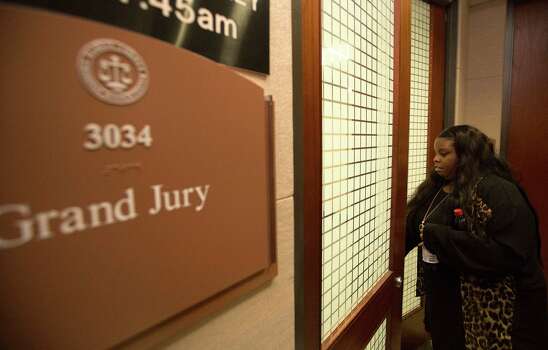Greater Houston Coalition for Justice
The Greater Houston Coalition for Justice exalt the of end of the ‘pick-a-pal’ grand jury system
Houston — The passage of Texas Grand Jury reform legislation and signed into law by the governor fulfill a major part of the mission of the Greater Houston Coalition for Justice.
“The removal of Texas’ notorious ‘pick-a-pal” method for selecting grand jurors moves us closer to transparency and a step towards trust in our criminal justice system, said Johnny N. Mata, Presiding Officer for the Greater Houston Coalition for Justice.”
The Greater Houston Coalition for Justice (GHCFJ) will continue pursue the creation of an Independent Police Review Board, greater human rights awareness and legal safeguards, particularly in relation to hate crimes and race relations. Equally important is promoting greater understanding of and participation in, criminal justice issues among the general public; and to enhance relations between regional law enforcement entities and the diverse cultural communities.
###
By Mike Ward | June 19, 2015
AUSTIN — A bill ending Texas’ notorious ‘pick-a-pal” method for selecting grand jurors was signed into law Friday, a move heralded as a way to end lingering questions of bias in the criminal justice system.
Gov. Greg Abbott signed House Bill 2150 to use the same random-selection system for seating grand juries that is used to pick juries to hear court cases. It replaces the so-called “key man” system in which a judge selects people he knows to recommend the names of prospective grand jurors.
Under the change, names are randomly selected from voter rolls and driver license records, a larger pool of prospective jurors that supporters said will result in more diverse juries across the state.
The law was proposed after Houston Chronicle columnist Lisa Falkenberg, in a series of columns in the past year, detailed abuses in the current system that allowed retired police officers to serve on grand juries reviewing criminal cases involving police, jurors who repeatedly were used because they were friends of a judge and other questionable issues that critics said resulted in biased panels.
Some counties had opposed the change, arguing that judges should be allowed to continue having friends and people they trusted recommend names of their friends to sit on grand juries.
Supporters of the change said the new system for selecting grand jurors, already in use in other states, was needed to ensure that grand juries reflected the diversity of the counties they serve.
Also Friday, Abbott also signed House Bill 2398 to decriminalize truancy and Senate Bill 1630 that allows Texas’ juvenile-justice system to utilize more community-based programs rather than state lockups.
Grand Jury Reform Bill Heads to Abbott’s Desk
A bill overhauling Texas’ grand jury system is headed to Gov. Greg Abbott‘s desk after the House gave final approval Sunday to a compromise centering on the diversity of the panels.
The move brought Texas another step closer to scrapping the “pick-a-pal” method in which judge-appointed commissioners select jurors, an uncommon practice nationwide. Critics say the process, as opposed to randomly selecting jurors from pools of names, can lead to conflicts of interest.
It is unclear whether Abbott will sign House Bill 2150, but as the legislative session winds down, lawmakers have signaled the governor’s office has been involved in fine-tuning the proposal. Last weekend, Rep. Harold Dutton, D-Houston, removed language from the Senate version of the bill — at Abbott’s request, he said — striking out a provision that would have ordered courts empaneling juries to take into account a county’s “demographics related to race, ethnicity, sex and age.”
The Senate rejected that change, and members of both chambers met in a conference committee to reach a resolution. House and Senate negotiators ultimately agreed to replace the language in question with a requirement that the jurors be picked from a “fair cross section” of the county.
The Senate approved the new language Saturday, and the House gave it a final sign-off Sunday by a vote of 86-57.
Sen. John Whitmire, the Senate sponsor of HB 2150, said Sunday that he preferred the original language on diversity, but he added that Abbott “made it pretty clear” his lawyers saw constitutional issues with specifying categories such as race and ethnicity. Whitmire, a Houston Democrat, said he was nonetheless pleased with the compromise, noting it still makes juror selection a more random process.
“That was not a deal killer,” Whitmire said of the diversity provision. “It is a good bill.”
The proposal to nix the “pick-a-pal” method has worked its way through the Legislature amid outrage across the country that grand juries have failed to indict police officers in shootings of unarmed men. The proposal has been on somewhat of a rocky ride this session, winning unanimous approval from the House in March, narrowly avoiding death earlier this month and then finding a path to Abbott’s desk Sunday, the second-to-last day of the session.
Matthew Watkins contributed reporting.
By Mike Ward | May 14, 2015 | Updated: May 14, 2015 8:48pm
 Photo By Johnny Hanson/Staff
Photo By Johnny Hanson/Staff 


